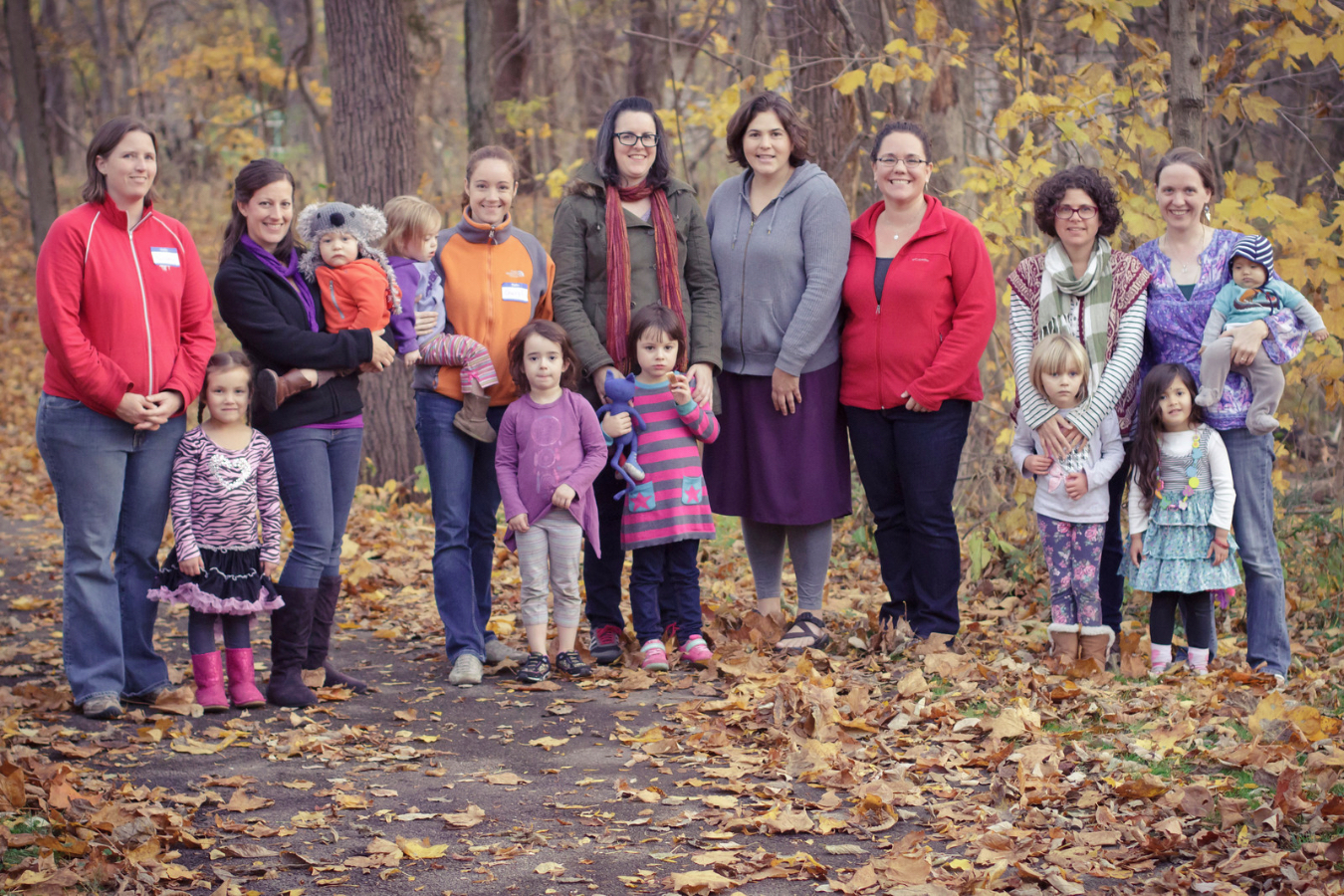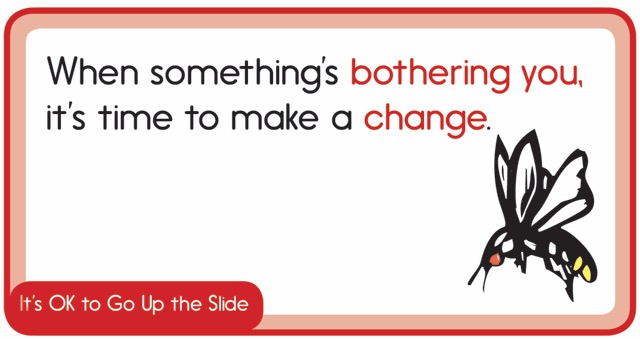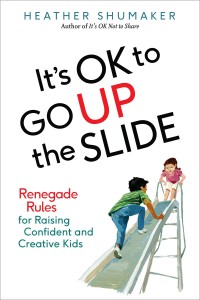A World of Books and Children
Search and enjoy 8 years of posts chock-filled with ideas from It’s OK Not to Share and beyond.

Some of the founding board members and families of the Red Oak Community School. No good kindergarten options in your area? Start one!
It's time for some good news. If you're looking for inspiration in the early childhood world, look no further than Cheryl Ryan and the brand new Red Oak Community School.
Her motto: "No grades, no homework, no testing."
Like many parents, Cheryl noticed that kindergarten options were not good for the kindergarten-aged child. Cheryl's from Columbus, Ohio, and already had her children at SYC (the Columbus preschool School for Young Children that inspired my books It's OK Not to Share and It's OK to Go Up the Slide), but SYC doesn't include kindergarten. So what did she do? Together with a group of like-minded parents and teachers, she founded a new school catering to 5-8 year olds.
What's amazing is that Red Oak went from idea to reality in just one year.
"People ask me: 'Why didn't you just homeschool your child?'" Cheryl told me. "This was easier."
That's right. According to Cheryl, starting a brand new school is fairly simple. Cheryl and her fellow visionaries brainstormed, filed for nonprofit status, found funding, hired teachers, found a building, and enrolled 35 students. Their first "let's do this" brainstorm happened in August 2015. By September 2016, the school opened its doors to kids. Initially Red Oak is a K-2 school, with plans to expand up to age 14.
It's a school where children love coming. It's joy-filled learning with a strong dose of nature. Red Oak is a model for what we can do about kindergarten. So many caring adults lament that "kindergarten is the new first grade." We need more kindergarten options that are healthy, good fits for children.
Worried about kindergarten options in your area? Start your own school.
- find your tribe of like-minded families
- file the paperwork
- find a teacher(s) and space
- enroll eager students
That's the simplified version (setting up a school rules vary by state) but if you are dreaming about creating a place where kindergarten-aged children can THRIVE, then find out more about the nitty-gritties and listen to Cheryl's shining example on our podcast interview. Cheryl was a guest on Renegade Rules podcast. Listen to the interview.
We all need inspiration. The world needs developmentally-appropriate kindergarten programs. If your town doesn't have one, why not give your dreams some action and start one now?
Have any new kindergartens started in your area? Who are the visionaries who started a program you admire? Could you be another visionary?

Speaking up is hard to do, but that's called courage.
I suppose the whole message of my "It's OK" books is simply about speaking up.
Speaking up when something's wrong. Speaking up directly child-to-child when a child doesn't like something. Speaking up when the culture is at odds with what's good for human beings. Speaking up if something is just plain wrong for life on this planet.
Sometimes we know something is wrong but we stay silent. That's understandable, but make a resolution to practice courage. Silence can hurt. We hurt ourselves, our children and the people around us if we know something is wrong and don't say anything.
For those of you who've bucked the system, questioned a teacher, family member or authority figure, disagreed with someone respectfully, been willing to state what you don't like and work toward a solution together - you know it's hard. Extremely hard. Speaking up takes courage.
Speaking up is hard. It's lonely. It takes practice. It's daunting, difficult and downright frightening for most of us as adults. But if we learn this practice from childhood, it's much easier. It also gets easier with practice. Courage begets courage.
The topics in my books cover speaking up in many forms: conflicts over sharing, conflicts over friendships, conflicts over anything, homework, recess-deprived children, strangers, body limits, feelings, ideas, respect. Fundamentally it's all about respect and kindness.
On the eve of the U.S. presidential election, I'm speaking out in favor of kindness. No matter what your past or current political views, do not let your vote endorse a person with bullying, bigoted ideals and give him a seat of world power. It's dangerous. If your views are conservative, support other conservatives on the ticket.
What we need -- at all ages -- is to make an effort to understand each other, take care of each other and respect each other.
Taking turns. Speaking up. Listening. Practicing emotional control.
As Winston Churchill said: "Courage is what it takes to stand up and speak; courage is also what it takes to sit down and listen."
Have you found your courage lately? Have you ever known something was wrong "in your gut" for a long time before speaking up? When's the last time your practiced courage?

Heads down. This is what parents look like to kids.
If you ask most adults, they're concerned about kids and the amount of time they spend on screens. That's definitely important, but have you asked kids lately how they feel about their parents' use of screens?
Too often, this is what children see: Heads down. Attention focused on the device. Parents lost in the netherworld of their phone.
We're constantly modeling sensible tech use to children (or not such sensible tech use). Here's what they're learning when we over-use phones:
- The online screen world is more important and fascinating than this one.
- It's OK to interrupt people in real-life all the time.
- I have to really work to get my parent's or another adult's attention.
- Balance? Boundaries? Manners? What are those?
When it comes to parenting, we like to focus on how to improve the kids' behaviors. It's a little harder to focus on our own. Smartphones have swept over our generation like a tidal wave. In all the excitement and flurry we've often forgotten to find balance.
Just like modeling good nutrition, parents must demonstrate healthy tech use.
Our daily habits matter. Kids are always watching and jumping to their own conclusions. "I thought grown-ups were just playing video games all day," said one boy. That's what he likes to do with a screen, so he assumed that's what all the grown-ups around him were doing.
Try setting up some new healthy screen habits.
- Announce what you're doing. "I'm checking the weather." "I'm sending a message to Daddy." The screen is a vast portal to anywhere. Kids and others around you don't know what you're up to, so it's polite to let them know.
- Make pick-up and drop-off time a no-screen time. Finish your phone call before picking up your child from school. Enter the building fully present. Meetings and greetings are vital social times.
- Set aside sacred times and spaces. Set family rules to keep mealtimes, bedtimes and bef0re-bed times screen-free. Make sure adults stick to it.
- Discipline yourself and your phone. No, you don't need it all the time. Remember it's just a tool. You're in charge of it; it's not in charge of you.
If your family struggles with phone use, try my chapters devoted to technology in "It's OK to Go Up the Slide." Here's an interesting article about overdoing tech and what it does to us: "I Used to be a Human Being" and NPR's "For Children's Sake."
Remember, the children are always watching. We need to show them that real life is the most fascinating thing of all.
How do you see adult phone use impacting children in your life? What is your relationship with technology? Who's on top, you or your phone?

